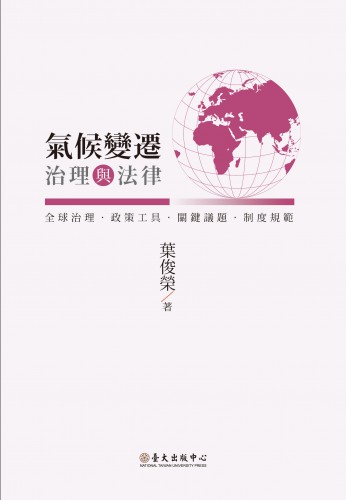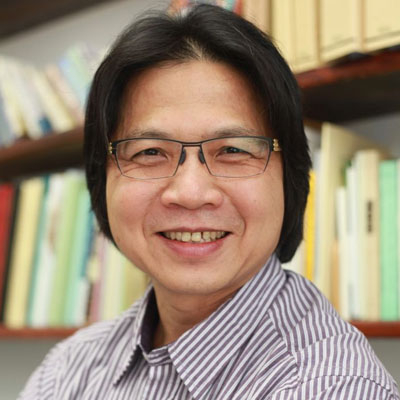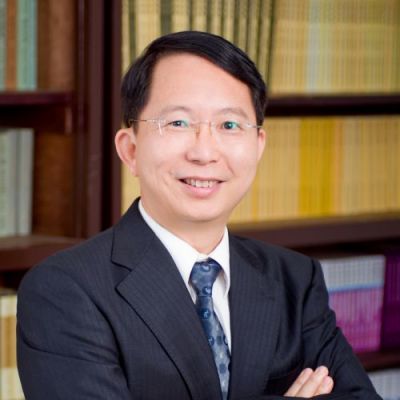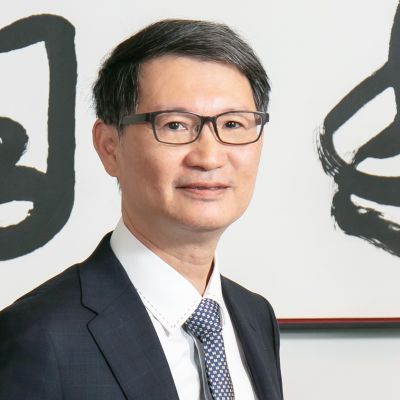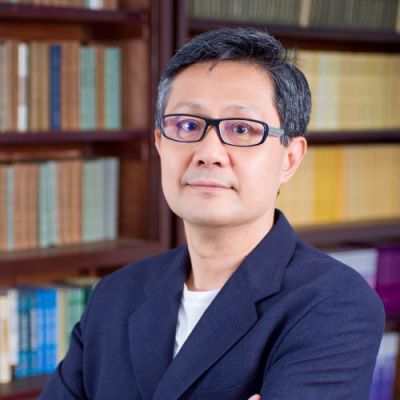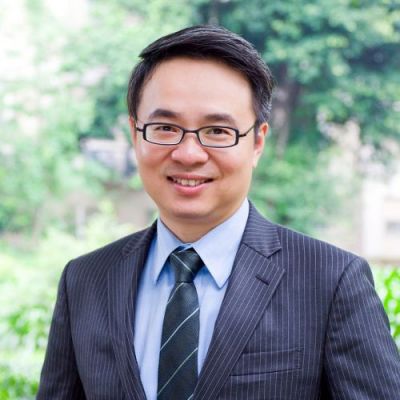law
Pre-EIA Procedure Required for Future Economic Development Projects with Significant Impact
In consideration that the cost the society paid in the KuoKuang Petrochemical Project was far too large than affordable, a pre-EIA (environmental impact assessment) procedure is required in all economic development projects with significnat impact. The NCSD (National Council for Sustainable Development) passed decision that in the future, all economic development projects with significant impact should be first estimated by the NCSD. Afterward the Executive Yuan shall decide whether or not to proceed with the project based on the advisory assessments brought by the NCSD. Only through these procedures can the said projects enter into EIA procedures.
The NCSD is established in pursuance of sustainable development of environment, resources, economics, social justice. Its commission is comprised of 24 to 30 members, including the Premier of the Executive Yuan in charge of chairman, one third each government representatives, scholars and experts, and civic groups.
This recommendation was proposed by the EPA (Environmental Protection Administration). The Vice Minister of the EPA clarified, the estimation of the NCSD is in virtue the same with environmental impact assessment, taking into consideration environmental impact, sustainable development and feasibility of development projects. With this pre-EIA procedure, project investors could be informed of the possible outcome earlier, instead of being intervened after the investment begins, and the latter obviously would invoke critics on the EPA.
The Legislative Yuan passed “Renewable Energy Development Bill” on June 12th
The main scope of “Renewable Energy Development Bill” includes planning to increase the capacity of Taiwan’s renewable energy generating equipment, using the purchasing measures, encouraging measures, and loosened laws to appeal people to renewable energy, so as to make good use of Taiwan’s potential on renewable energy.
Members
| Director | |||
|
Jiunn-rong Yeh is a full-time professor at National Taiwan University College of Law, and Chair professor at National Taiwan University. In May 2016, he swore into office as Minister of the Interior and then Minister of Education before he returned to his professorship at National Taiwan University in December 2018. He acquired LLM degree from National Taiwan University College of Law. He also received JSD degree from Yale University, U.S.A. His research interests are constitutional law, environmental law, and administrative law. Currently, his primary research focuses on climate change, East Asian constitutionalism and global administrative law. |
|||
| Professors | |||
|
Wen-Chen Chang is Distinguished Professor at National Taiwan University College of Law. She obtained LLB and LLM degrees from College of Law, National Taiwan University, and LLM and JSD degrees from Yale Law School. Her research interests focus on comparative constitutional law, international human rights, administrative laws, and law and society. |
Tsung-fu Chen is a full-time professor at National Taiwan University College of Law. He obtained JSD from New York University, U.S.A. His research interests are legal sociology and liability. He teaches Taiwan Civil Code (including contract law and tort law), Anglo-American Torts, and Medical Law at National Taiwan University. |
Chien-Liang Lee is the Director & Distinguished Research Professor at Institutum of Iurisprudentiae, Academia Sinica and a professor at National Taiwan University College of Law. He received the Dr. jur. degree from Goettingen University, Germany. His researches include constitutional law, administrative law, and environmental law. |
Huang-Chih Chiang is a professor at National Taiwan University College of Law. He received LLB, LLM degrees from National Taiwan University and the PhD degree from London University, England. His research interests are public international law, international organization law, international human rights law and the law of the sea. |
|
Tze-shiou Chien is a professor at National Taiwan University College of Law and a research fellow at the Institutum of Iurisprudentiae, Academia Sinica. He received the Dr. degree from University of Georgetown, U.S.A. His research interests are tort law, property law and law and economic analysis. He teaches law and economic and torts at National Taiwan University. |
Andrew Jen-Guang Lin is a professor at National Taiwan University College of Law. He received his Dr. degree from Duke University, U.S.A. His research focuses are corporate governance, internal control and internal audit mechanisms, investor protection law, and other topics in corporate and securities laws. He teaches Anglo-American contract law, commercial law, corporation law, and business law at National Taiwan University. |
Hsin-Chun Wang is a professor at National Taiwan University College of Law. He acquired the PhD degree from Queen Mary College, University of London, England. His research interests are insurance law, regulation of insurance, insurance and competition law, regulation of financial market, alternative risk transfer and insurance regulation, compulsory liability insurance. |
|
中心助理
• 李昭華 / 陳胤佑
Advisors
Wen-Yen Chiau is a legislator of Legislative Yuan in Taiwan, a professor and the former director of the Institute of Marine Resources Management in National Taiwan Ocean University. He received his MA and PhD from University of Pennsylvania, U.S.A. His research interests focus on marine affairs, ocean and coastal management, and wetland conservation, planning and management.
Chang-Chuan Chan is a professor at Institute of Occupational Medicine and Industrial Hygiene, National Taiwan University. He was also a member of the National Sustainable Development Committee, Executive Yuan, Taiwan. He received his MA and PhD from Harvard School of Public Health. His research projects include environment, health, risk assessment, and environmental management.
Hsin-Huang Hsiao is a Distinguished Research Fellow, Institute of Sociology, Academia Sinica , and a professor at Department of Sociology, National Taiwan University. He received MA and PhD degrees from State University of New York. His research fields include sociology of development, middle classes, social movements, environmental sociology, and non-profit organizations.
Shu-Li Huang is a distinguished professor at Graduate Institute of Urban Planning and the director of the Center for Global Change and Sustainability Science at National Taipei University. He received PhD from Department of City and Regional Planning, University of Pennsylvania. His research interests are global environmental change and urban planning.
Ling-Ling Lee is a professor at the Institute of Ecology and Evolutionary Biology, National Taiwan University. She received her PhD from University of California, Davis, U.S.A. Her research interests are animal ecology, animal behavior, mammalogy, conservation biology, and biodiversity. Recently her research focuses on the impact of climate change to ecology.
Tze-Luen Lin is an associate professor at the Department of Political Science, National Taiwan University. He received PhD from Urban Affairs and Public Policy, University of Delaware. His primary researches include environmental politics and policy, urban politics, democracy and green political thought, and public deliberation.
Chao-Han Liu is distinguished professor of Academia Sinica. He used to serve as the Vice President of Academia Sinica, President of the National Central University in Taiwan for twelve years and as Chancellor of the University System of Taiwan for four years. He received the BS degree from National Taiwan University and PhD from Brown University. His research interests are radio science, international solar terrestrial physics and global change.
Jin-Tan Liu is a professor at Department of Economics, National Taiwan University. He is also a research associate at National Bureau of Economic Research. He obtained PhD degree from Vanderbilt University. His research interests are environmental economics, econometrics, environmental pollution impact and relating risk assessment.
Wen-Chen Shih is a professor at the Department of International Business of National Chengchi University. She received PhD in Law from the School of Oriental and African Studies, University of London, UK. Her research interests are international financial trade law, international environmental law. Recently her studies focus on international environmental conventions and environmental sustainability.
Huei-Min Tsai is an associate professor and chairman at Graduate Institute of Environmental Education, National Taiwan Normal University. She obtained her PhD from National Taiwan University. Her research interests are island geography, global change and environmental sustainability.
Juju C. S. Wang is the director of Holistic Education Center at Fujen Catholic University, and a professor at the Institute of Sociology, Tsing-Hua University. He received his PhD of Land Use Planning, Design and Management, from Texas Tech University, U.S.A. His researches include sociology, social movements, environmental protection and sustainability.
Yue-Hwa Yu is a emeritus professor at the Graduate Institute of Environmental Engineering, National Taiwan University. He received the BS degree from Department of Civil Engineering, National Taiwan University and D. Sc. Degree from Washington University, U.S.A. His research interests include water and wastewater treatment, environmental impact assessment, and environmental planning and management.
Overseas Advisors
Our Missions


PLES has identified four primary tasks that include both research and participation for domestic and international environmental policy and law.
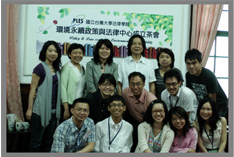 |
We seek to create constructive dialogues between academics, practitioners, policy makers, environmental groups and concerned citizens. Via this vibrant forum, more environmental issues could be brought up, fully discussed and implemented into future policy. |
1. Establishing environmental sustainability policy and law database
This database collects and analyzes environmental legal materials covering from domestic legislation, government policies, court decisions, international treaties/conventions, to comparative environmental policies and laws. Additionally, PLES shall issue reports or policy papers on major developments in domestic and international environmental laws, policies as well as court decisions.
2. Focusing on environmental legislation and policy making
Taiwan has successfully implemented major environmental legislation in the last two decades. In response to recent global environmental initiatives and green technology innovation, however, much of this body of law requires further improvement. PLES shall take a lead in major legislative and policy innovations and assist to generate academic discussions and public deliberation.
3. Promoting international participation and cooperation on environmental sustainability
PLES shall serve as a linkage between Taiwan and the world on sustainable environmental law and policy making. It is dedicated to facilitation of international academic exchange and collaboration. Various workshops, research programs and symposia shall be held with other environmental law and policy centers to form strategic alliances. Based on comprehensive studies and frequent cooperation with others, PLES aims to join the discussion of global environmental issues.
4. Facilitating environmental legal education and NGO involvement
It is our priority to facilitate environmental legal education. PLES shall help to provide joint courses with experts in various fields and English courses with transnational collaboration as an attempt to vest our students and future environmental lawyers with interdisciplinary competence and global vision. Environmental law clinics and practical training workshops would also be offered as an important way to reach out to our community.
Our History

 Environmental sustainability has become a global consensus. Every nation in the world has dedicated herself to the preservation of environment and facilitated it by way of policy making or legislation. However, sustainable policy or law making is no easy task and poses great challenges to the wisdom of every decision maker. PLES is seeking to serve and provide such a pioneering role for sustainable environmental law and policy making in Taiwan and beyond. Our goal is to develop PLES into a primary research base and a policy think tank for Taiwan, East Asian region and the world.
Environmental sustainability has become a global consensus. Every nation in the world has dedicated herself to the preservation of environment and facilitated it by way of policy making or legislation. However, sustainable policy or law making is no easy task and poses great challenges to the wisdom of every decision maker. PLES is seeking to serve and provide such a pioneering role for sustainable environmental law and policy making in Taiwan and beyond. Our goal is to develop PLES into a primary research base and a policy think tank for Taiwan, East Asian region and the world. 《氣候變遷治理與法律》新書出版
《氣候變遷治理與法律》 葉俊榮著
在當代全球秩序之下,氣候變遷議題一直受到「國家」的主宰,
本書以國家利益中心主義作為全書論述與批判的對象,
藉由氣候變遷議題,對以國家為本位的治理,尋求制度和理論的突破。
在當代全球秩序之下,氣候變遷的協商一直受「國家」主導,參與協商的國家從利益出發,造成共識難產與行動拖延;相對地,氣候變遷的治理則呈現多層次並行、管制工具多元、以及減緩與調適並重的現象與需求,再再考驗決策者與「氣候公民」的智慧與決心。臺灣既是氣候變遷的貢獻者,也是極端氣候下的最大可能受害者,不論政府或民間都應該掌握議題並積極因應。作者研究氣候變遷與環境法多年,在本書中對於氣候變遷的治理與法律制度的因應,作出一些反省。
本書從法律角度提出因應氣候變遷的分析架構,聚焦於「全球治理」、「政策工具」、「關鍵議題」以及「制度規範」等四個面向,以臺灣作為立足點,用深具批判性、濃厚政策取向的方式,論述全球氣候變遷治理,為當前國際上國家本位的治理模式,尋求制度與學理上的突破。
更多資訊:
http://www.press.ntu.edu.tw/?act=book&refer=ntup_book00769
